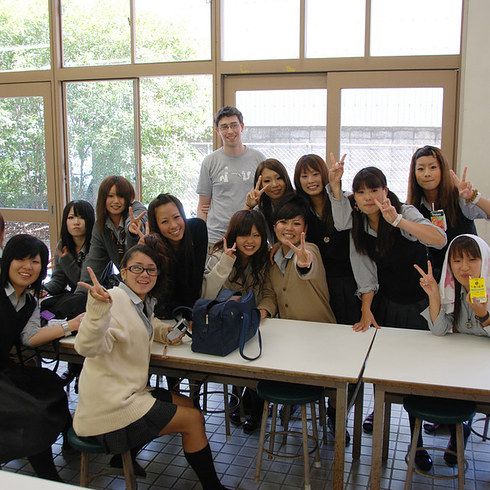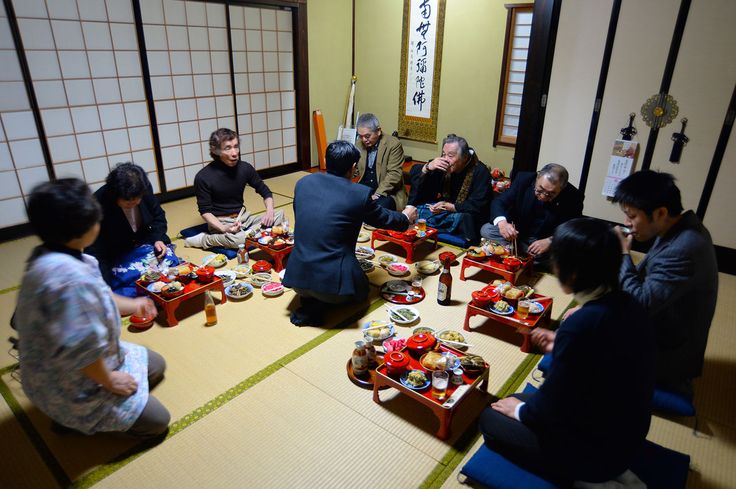Let’s talk about why Japanese think owners living in Japan are rude. So I wanted to cover what Japanese consider rude that’s not usually in your average blog or video. Probably fair to say that visiting Japan as a tourist and living and working in Japan is a completely different experience. It’s no longer just about visiting the coolest sites or eating the coolest food. Residents have become a part of the daily grind with all of the other Japanese living here.
And what a lot of foreigners don’t realize is that there are a lot of unwritten rules here in Japan to help maintain the society—until maybe it’s too late. So I’m going to share with you some of the more interesting, unwritten rules that I personally came across to help anyone planning on living in Japan to avoid being considered as that rude foreigner.
As always, these are general rules. Nothing is absolute in this world. Everyone is different, and some Japanese will be more sensitive to these rules than others. Also, I’m interested to know how these rules compare to your country. Anything stick out? Let me know in the comments. And if you want me to do more of these types of videos, let me know by hitting that like button.
And as always, if you want to see what I’m doing on the daily, check out my Instagram account. If you want to help support the channel, check out the link below. And if you have any questions about Japan or your Japan travels, check out my Discord Community. Let’s get into it and move on to the next spot.
Number one: Working in Japan.

So many foreigners coming and living in Japan are here for work, so let’s start with that. This first issue is one of those things that bothers a lot of Japanese. You may already know that Japanese employees operate as a team, especially in the office environment, where everyone is required to do their part.
But if you’re working long enough with a company, you’re eventually going to want to take some time off—during holidays and long weekends to maximize your time. What ends up happening is some foreigners don’t consider their coworkers and take the time off as they please. They come in with that mindset that no matter what, they’re taking the time off.
“No matter what, end of August, I am taking one week off. I deserve it.”
But therein lies a problem. In Japanese culture, it’s important to consult with your coworkers beforehand and discuss ongoing and future projects to make sure your projects are covered before taking the time off—essentially putting your coworkers and your company first. The downside is that since a lot of companies run pretty lean, it becomes ever more difficult to take the time off, as it becomes a huge burden for your coworkers—and is a large reason why many employees don’t take the time off at all.
Number two: Coming back from vacation.

Now, if you were able to get that time off without alienating yourself from your team, it’s now time to return the favor. This comes in the form of omiyage—a gift, usually from a place you visited, maybe a box of sweets or snacks to share with the team, since many of them had to cover for you while you were gone.
This is a gesture to say, “Thank you for handling my workload when I was gone, and here’s a little treat so you can experience a piece of my holiday.” Forgetting this, as well as taking a holiday as you please, would be a double punch to your coworkers.
Number three: Greeting your neighbors.
What many people don’t know when moving into a new place is that you’re supposed to greet and give a gift to your neighbors to introduce yourself. But it’s probably fair to say that this is one of those older customs that even some younger Japanese families aren’t following themselves. This is more common in less densely populated areas—especially homes where you often see neighbors—and less common in densely populated areas like Tokyo and large apartment buildings. The idea behind it is for neighbors to get to know who you are, and the gift itself doesn’t need to be major—usually a snack or towel worth about five to ten dollars.
Number four: Visiting someone’s home.

At some point, you’ll probably be invited to someone’s home. And you probably already know that when entering a Japanese home, you’re supposed to take off your shoes. But what many don’t know is that there’s a proper way to do it. And when Japanese don’t do it themselves, it kind of shows that they weren’t raised correctly. Just after you take off your shoes, you don’t just leave them as is and walk in.
You’re supposed to take off the shoes, line them up, and face them toward the door—like this. Doesn’t it look just so much cleaner this way?
Anyway, before I continue on, I wanted to give a quick shout-out to our sponsor for this video—Bokksu. If you don’t already know, Bokksu provides a gourmet experience of Japanese snacks delivered to your front door.
They work with traditional Japanese factories, some over a hundred years old, to provide you with unique snacks. And each monthly box has its own unique theme so you don’t get the same snacks every time. First-time users will get a Seasons of Japan box, and after that they’ll get a themed box like this one. Right when you open the box, you get this nice booklet that takes you through each snack as well as information about Japan.
You get 10 to 25 snacks in your box, depending on the package you choose, and they’re hand-picked from all over Japan to deliver you unique and local Japanese flavors. So get 10% off your own authentic Japanese snack box from Bokksu and save up to $44 using my code “Peloton” and the link in the description. That’s it—let me share the next tip.
Number five: Shopping for food.
So if you ever make your way to a supermarket, you might want to know this one: in Japan, it’s considered bad manners to feel up the food and put it back—especially in the meat section and produce section. No one wants bruised peaches or kiwis, plus it makes the fruit unsellable. And there’s something about someone else pressing up on your meat.
The idea is—all that food is going into someone’s mouth, and by touching it, it’s like putting your fingers inside of their mouth. Like many of these unwritten rules, it’s something that you’re taught when you’re a kid. So it’s even rude to tell someone that they’re being rude to their face, so you probably won’t even have any of your Japanese friends tell it to your face—but they may talk behind your back.
Number six: Eating manners.
Now there are so many eating manners and chopstick etiquette rules here in Japan that I couldn’t cover it all in this video. But in fact, I already created a video on that, so if you’re interested, check out my video called How to Eat Japan. But one thing that I didn’t mention—and that Japanese think is really gross and that some foreigners don’t realize—is licking their chopsticks. It’s really, really just kind of disgusting.
I don’t think anyone goes out of their way to lick their chopsticks. It usually happens when people aren’t good with their chopsticks and they get food all over them, and they think naturally the best way to get that food off is to lick it off. But if you’ve gotten here, you’re kind of at a point of no return, as there’s no proper solution, manner-wise, to remove the food off your chopsticks, as Japanese wouldn’t have allowed food to remain on their chopsticks after the first bite. As a last resort—
Better than licking your chopsticks: covertly wash off the chopsticks with your soup. Anyway, that’s a no-no in Japan, so best to probably avoid doing that.
Number seven: Owning a dog.
Now this one really surprised me when I found out—especially coming from the U.S. If you ever decide to own a dog in Japan, you’re going to have to take it out for walks.
It’s probably already common sense that you need to clean up after your dog’s poop. But in Japan, you’re also supposed to clean up their pee by washing it down with water afterward. Is there any other country that has to do this?
Number eight: Wedding gifts.

If you’ve made some close friends in Japan, you’ll probably get invited to a few Japanese weddings. If so, you’ll quickly find out that it’s customary in Japan to give the bride and groom money instead of an actual gift—usually starting at about $300. The thing foreigners should be careful with is to give the money in odd increments—so $300, $500, $700, and so on. But most importantly, the money needs to be brand-new, crisp bills picked up from the bank.
It’s actually rude to give used, folded, or wrinkled bills at a wedding, as it’s a symbol of a new beginning. I guess in this case, money isn’t all the same.
Number nine: Receiving gifts.
Now if you ever receive a gift—for something like a childbirth, a wedding, or a special celebration—you are obligated to give back 30 to 50% of the gift’s worth.
In fact, this custom is so ingrained in Japan’s culture that they even have return gift booklets, and now websites where the original gift giver can select the gift to get back. To say the least, if you get a gift, don’t forget to give one back. Personally, I always find it quite funny that in order to follow this custom, you have to do research on how much the gift costs.
Finally, if you live in Japan long enough, it’s quite unfortunate—but you may be invited to a funeral. This one caught me really off guard. Yes, wearing black attire is a must, and the overall attire may be more strict than in other countries. But what struck me is that if you wear sunglasses at a Japanese funeral, it is extremely rude.
See, in the U.S., it’s quite common to wear sunglasses to cover your eyes. But in Japan, it’s a definite no-no.
So there you go. That’s my list. What did you think? Anything that was extreme? Anything that was fair? Let me know in the comments. Again, I can’t stress enough that these are general rules—not every single person in Japan follows these rules—but nonetheless, it should serve as a guide to avoid being considered that rude foreigner if you’re planning on living in Japan.
So I hope you liked this video. And if you did, help me out by hitting that like button. If you guys want to see more of these types of videos—Japan guides, Japan food guides, daily life videos—hit that subscribe button. And I’ll catch you guys in the next one. Catch you guys in the next one. Catch you guys in the next one…

